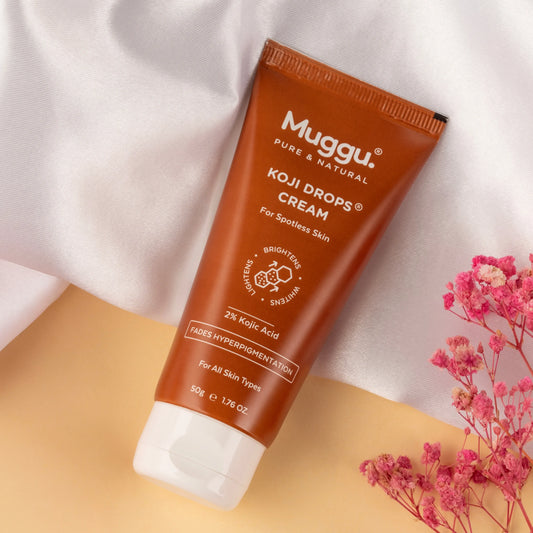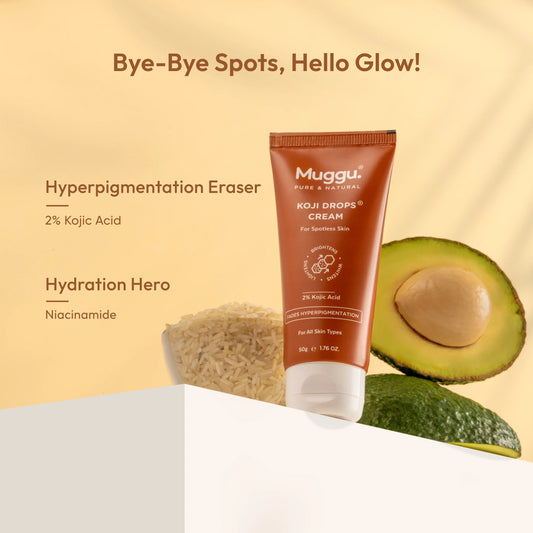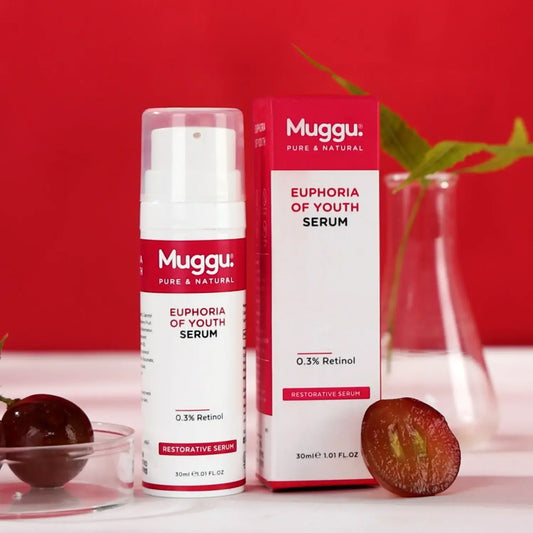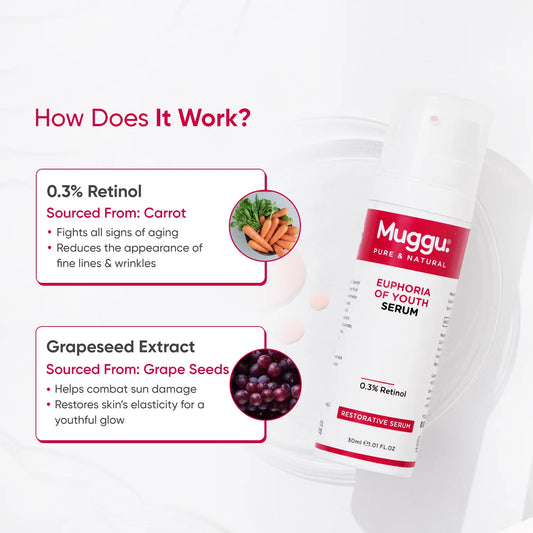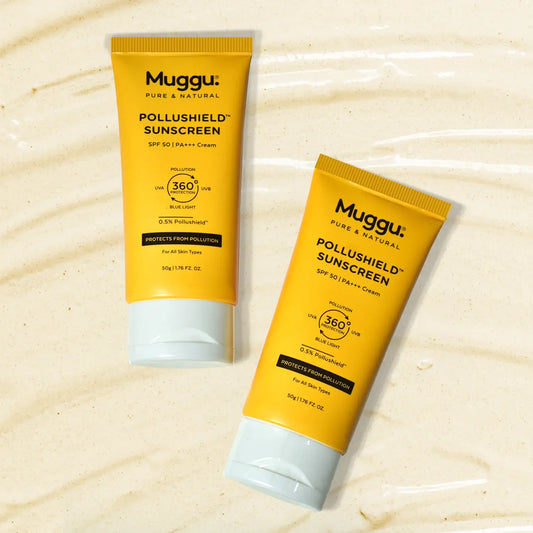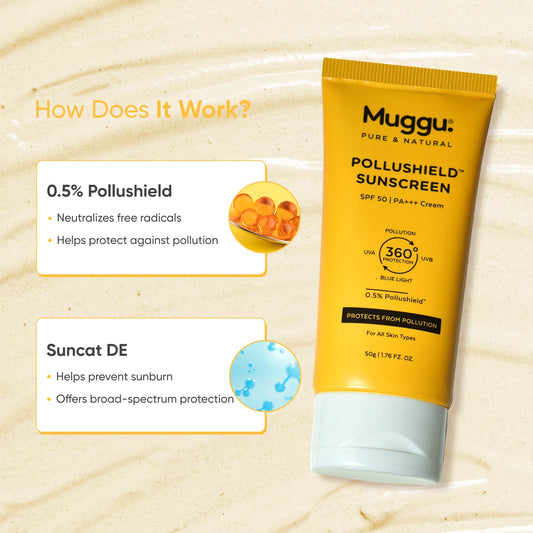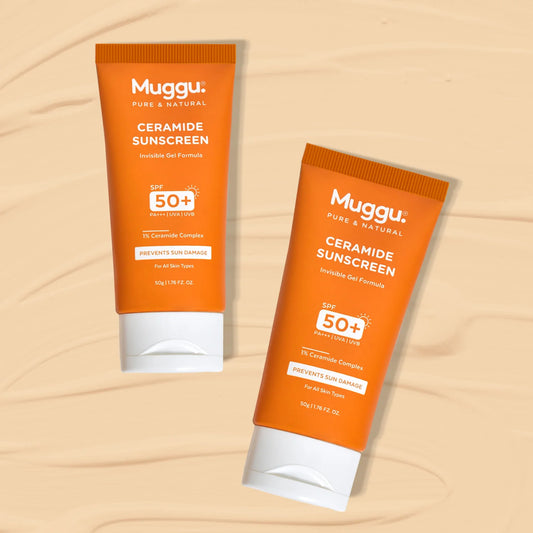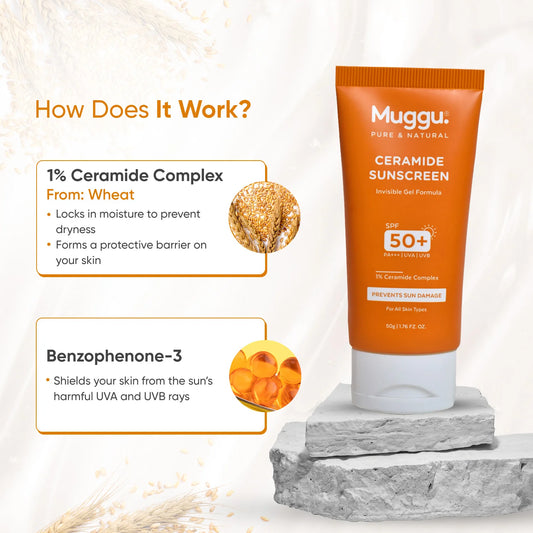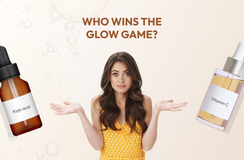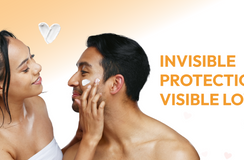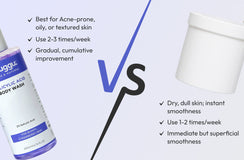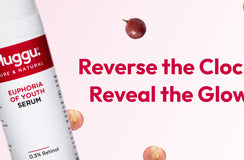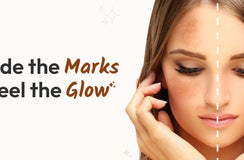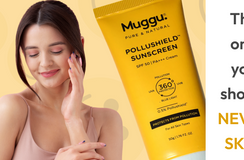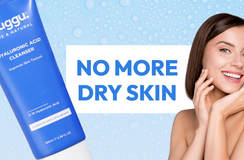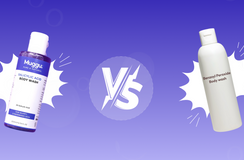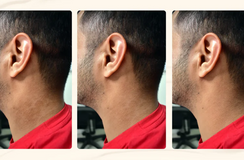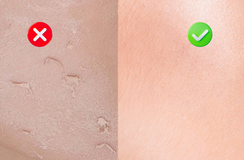Ah, puberty, the time of transformation - physically, emotionally, and yes, even dermatologically. Around the age of 12, you begin experiencing hormonal changes, which may affect your skin as well. From mild breakouts to oiliness, the first signs of adolescent skin problems begin to appear. That’s why doing the right skincare becomes more important than ever.
If you’re reading this, you’re probably a teen who’s confused about whether to start using sunscreen or not. You should, no questions asked! Teenage life is already crazy with hormones going wild and your skin misbehaving. One thing that shouldn’t be confusing is sunscreen. It’s the foundation of healthy skincare at any age, and getting into the habit now can make a huge difference for your skin.
The big question is: which kind of sunscreen works best for teen skin? And more specifically, what’s the deal with gel based sunscreens? This blog is your no-nonsense guide to everything you need to know. We’re diving into how teen skin works, why gel sunscreens are often a game-changer for oily and acne-prone skin, and how to choose the right product without feeling like you need a science degree.
By the end, you’ll know exactly what to do, what to avoid, and how to level up your skincare game with confidence - no filters required.
Why Teens Need Sunscreen (Even If You're Indoors)?
Sunscreen isn’t just for beach days or pool parties. It’s an everyday essential, even if you’re just indoors binge-watching, studying, or doom-scrolling. The sun’s UV rays can penetrate through windows and damage your skin. In addition, blue light emissions from your phone, laptop, or tablet may also cause skin dullness, pigmentation, and early signs of aging.
So yeah, even if you’re not outdoors, your skin’s still putting up a fight. Give it some backup, and wear that sunscreen!
Sunscreen is especially important for teens because:
-
Hormonal changes make your skin more sensitive.
-
Acne scars and marks can darken without protection, leading to uneven skin tone.
-
Sun damage builds up over time and may not be visible right now, but it shows up later as fine lines, wrinkles, and pigmentation.
Sunscreen is one of those rare skincare products that do more for prevention than treatment. So, using it early means fewer skincare struggles later. 🤗
What is a Gel Based Sunscreen?

Gel based sunscreen is exactly what it sounds like - a sunscreen with a gel-like texture. Unlike thick
creams or greasy lotions, gel based sunscreens are lightweight, fast-absorbing, and often water-based. No greasiness. No white cast. No “ugh, my face feels weird.”
Most gel sunscreens are water-based and clear, which means they don’t mess with your skin tone or make you shine like a disco ball. If you’ve got oily skin (hi, teen hormones) or live somewhere hot and humid, this is a game-changer. You’ll barely feel it’s there, but your skin will thank you later.
So yeah, if heavy creams aren’t your thing (we get it), give gel sunscreen a shot. Your skin’s gonna love the upgrade.
What's Going On With Teen Skin, Anyway?
Teenage skin can be a bit all over the place. One day it feels dry, the next it’s super oily and breaking out. That’s totally normal. When you hit puberty, your body starts making more hormones, especially ones called androgens. These hormones tell your skin to make more oil, and sometimes that extra oil clogs your pores.
Breakouts happen, and it’s not your fault. Your skin’s just figuring itself out. The key is to treat it gently and use products that actually help, not hurt.

In simple words,
-
Your pores are more active and produce more oil.
-
You’re more prone to breakouts, blackheads, and acne.
-
Your skin might react more easily to new products.
That’s why it’s important to go for skincare that’s gentle, non-comedogenic (won’t clog your pores), and suits your changing skin type.
So, Is Gel Based Sunscreen Safe for Teenagers?
Absolutely! In fact, it might be the best option for teen skin, especially if you deal with excess oil or acne.
Here’s why dermatologists often recommend gel sunscreen for oily skin:
Lightweight: Doesn’t sit heavy on skin, which is great if you hate the feeling of products.
Oil-free: Most gel sunscreens don’t have added oils, which means less chance of breakouts.
Quick absorption: You don’t have to wait forever before heading out.
Matte or natural finish: Helps reduce that shiny, greasy look.
The right gel based sunscreen for oily skin will feel invisible on the face, like a second skin—and that’s exactly what you want.
But Will It Make Me Break Out?
Let’s tackle this one head-on. The fear that sunscreen causes breakouts is super common, and honestly, it’s not totally unfounded.
Some sunscreens (especially thick cream-based ones with heavy oils or fragrances) can clog pores or irritate acne-prone skin. But here’s the good news: gel based sunscreens are specifically made to avoid this.
To avoid breakouts:
-
Choose one labeled non-comedogenic.
-
Look for one that’s fragrance-free and oil-free.
-
Always patch-test a new product on your jawline before applying it all over.
Remember, sometimes breakouts aren’t caused by products, but by not cleansing your skin properly or not reapplying sunscreen as needed.
Choosing the Right Gel Sunscreen for Oily Skin
Not all gel sunscreens are created equal. If your skin is oily, acne-prone, or sensitive, here’s what you should be scanning for on the label:
What to look for:
-
SPF 30 or higher
-
Broad-spectrum: Protects against both UVA and UVB rays.
-
Oil-free, water-based formula: No extra grease!
-
Non-comedogenic: So it won’t clog your pores.
-
Soothing ingredients like glycerine and ceramides. These strengthen the skin barrier and calm inflammation.
What to avoid:
Alcohol denat (can dry out or irritate your skin)
Ceramides in Sunscreen: What’s the Big Deal?
You might have heard the word "ceramides" tossed around in skincare ads or Instagram reels, but what are they really?
Ceramides are lipids (fats) naturally found in your skin. They help form a protective barrier that holds in moisture and keeps out environmental irritants like pollution and bacteria.
When your skin lacks ceramides, you might experience:
A gel based sunscreen for oily skin that also contains ceramides (like the one we use!) is kind of like giving your skin a protective hug. It hydrates without adding oil, calms without clogging, and supports your skin’s natural defense system.
How to Use Gel Sunscreen the Right Way (Without Overthinking It)

Okay, here’s how to apply sunscreen the right way:
1. Cleanse your face with a gentle, foaming cleanser.
2. Apply a light moisturizer if needed (depends on how oily your skin is).
3. Apply your gel sunscreen evenly across your face.
4. Don’t forget neck, ears, and around your lips.
Use the two-finger rule to measure the amount. Run two fingers with sunscreen from tip to base and apply that much.
Reapply every 2 hours if you’re outdoors, sweating, or playing sports.
Pro tip: Wait a minute or two after applying your gel based sunscreen before layering makeup or BB cream.
What About Sunscreen at Home or on Cloudy Days?
We get it, you wake up, see it’s cloudy, and you’re not planning to step outside much. So sunscreen feels... skippable. But here’s why that’s not the best idea:
-
UVA rays (the ones that age your skin) pass through windows.
-
Blue light from screens can worsen pigmentation.
-
Even on cloudy days, 80% of UV rays reach your skin.
So yes, even if you’re just binge-watching shows or studying by the window, gel based sunscreen should still be part of your routine.
Your Most Googled Questions: Answered Honestly
Q: Can I use sunscreen instead of moisturizer?
If your sunscreen is hydrating enough, especially the gel or cream-based ones, then yes, you can skip moisturizer, particularly if you have oily or combination skin. But in colder months or if your skin feels dry or tight, it’s a good idea to layer a light moisturizer underneath for extra comfort and protection.
Q: Will sunscreen make me look darker?
Nope, that’s a total myth. Sunscreen is actually your best defense against tanning and pigmentation. It helps block UV rays that trigger melanin production, which is what causes your skin to darken. So instead of making you darker, it helps your skin stay even-toned.
Q: Can boys use gel sunscreen too?
Absolutely, skincare isn’t gendered. Gel sunscreens are great for all skin types, and they’re especially popular with guys because they’re lightweight, non-sticky, and absorb quickly. So yes, if you’ve got skin, you can (and should) use sunscreen.
Q: What if I have a breakout? Should I skip sunscreen?
Please don’t skip it! In fact, sunscreen helps protect acne marks and healing skin from turning darker due to sun exposure. Just make sure you’re using a sunscreen that’s lightweight, non-comedogenic, and ideally gel-based so it won’t clog your pores or feel heavy.
Q: I’m only 14, do I really need this?
100% yes. Think of sunscreen like brushing your teeth—it’s a daily habit that protects you over time. Starting young means you’re giving your skin a huge head start when it comes to avoiding things like sun damage, early wrinkles, and dark spots later on.
Final Verdict: Should Teens Use Gel Based Sunscreens?
Short answer? Yes. Long answer? Also yes, especially if your skin leans oily or sensitive.
Gel based sunscreen is easy to wear, quick to apply, and friendly on skin that tends to freak out with thicker creams. It’s like a no-stress bodyguard for your skin - lightweight, invisible, and always working behind the scenes.
Look for ingredients like ceramides, avoid anything that feels too rich, and stick to something you’ll actually use daily. Even our own ceramide sunscreen checks all these boxes (just saying, no pressure 🙌).
And here’s the thing: you don’t need a 15-step skincare routine. If you only use one product, make it this one. Sunscreen is that important.
Taking care of your skin now means fewer issues later. Start small. Start smart.
Pick a gel based sunscreen for oily skin, make it a habit, and watch how your skin thanks you with fewer breakouts, even tone, and a glow that doesn’t need a filter.
Stay glowing, and hey, don’t forget to reapply. 🌞
